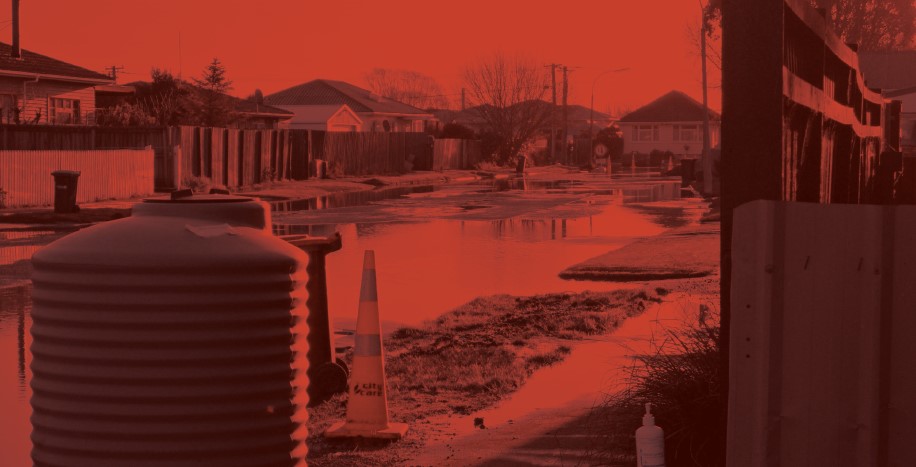
- Employers cannot change your employment agreement without consulting you.
Any changes to your employment need to be done in good faith* and with your agreement. - If you agree to any temporary changes to your employment terms, you must get written confirmation of the changes, and how long they will be in place.
Do not agree to permanent changes for a temporary issue. - If you can work from home, it may be reasonable to do so.
- Your employer can’t just stop paying you.
If you are available to work – whether at home or not – you should be fully paid. - Employers may refer to weather-related events as an “act of god” (other terms used include “frustration of contract” and “force majeure”) so they don’t have to follow your employment agreement. This is not a fact.
- Ask if your employment agreement contains provisions around force majeure. These clauses are rare in employment agreements.
- If you do have a similar clause in your contract, it does not remove the employer’s obligations under the law, including to consult with you in good faith* about any changes to your contract
- Ask if your employment agreement contains provisions around force majeure. These clauses are rare in employment agreements.
- Be careful of employers claiming they are temporarily closing, or shutting down their business to stop paying people.
Unless your employment agreement specifically covers this and meets the relevant criteria – shutdowns such as this are unlawful. - If there is a shutdown directly related to the floods, employers should still pay you according to your employment agreement.
*What is Good Faith
The law says that any changes to employment agreements must be talked about and agreed in good faith. Good faith means that you and your employer, as well as your union, must be honest with each other and actively communicate.
Good faith is a legal requirement, detailed in Section 4 of the Employment Relations Act 2000.
Redundancy
If you are made redundant (your employer says you are no longer employed), there must be a process.
They are required to give a reason and you need to be able to respond. Through this process, they must also show good faith* and you are entitled to all money you are owed, including pay, annual leave, redundancy pay, and your notice period.
Reduction in pay
It is against the law for your employer to take any money out of your pay without your agreement.
This is against the Wages Protection Act 1983.
If you are still working your normal hours, your employer can’t legally reduce your pay. If you have an agreement with your employer about what your normal hours are, or a normal pattern that you work, they also can’t change this without your agreement.
Leave-It is the NZCTU’s view that leave is to be used for its intended purpose i.e. annual leave is for rest and recreation, and sick leave is for when you or someone you look after is unwell and cannot work. The use of any leave needs to be with your agreement Employers need to follow a proper process for requiring annual leave – they can’t require you to take annual leave to cover sickness or looking after a sick family member.
Stopping work
If you believe your work is unsafe, or someone else is at risk of imminent harm, you have the right to cease work.
You can stop unsafe work when:
- The work will expose any worker or other person to a serious risk. Work should be ceased if there is a real likelihood of harm regardless of the whether the resulting injury would be minor; and
- The exposure to the hazard is immediate or imminent.
Health and safety does not stop
Risks arising from the floods must be assessed and managed like any other workplace risk.
- Workers are entitled to be engaged on the assessment and management of these risks.
Our Health and Safety legislation requires employers to engage with workers on all matters that effect workers’ health and safety.
This is a legal requirement and still applies regardless of your situation.
This includes when your employer is making decisions about what control measures are put in place, as well as listening, and acting on, any concerns raised by workers.
If you have any concerns about your health and safety at work, speak with your employer, engage your union, and get in touch with your health and safety representative (HSR).
Your HSR has powers under the Act to assist you with workplace health and safety matters.
Official advice and links
MBIE advice
MBIE has the following on their website – keep in mind our advice above when reviewing
WorkSafe advice
Keeping safe during cyclone and flooding recovery
Immediate support
Civil Defence Payment
- There are immediate payments available to cover the costs of food, bedding, clothing, accommodation, and or loss of income through the Civil Defence Payment – run through MSD
- You do not have to be on a benefit, and you do not need to be a New Zealand resident to be eligible.
- Support payments are available for those affected by Cyclone Gabrielle in:
- Tairāwhiti/East Coast region
- Hawke’s Bay region
- Manawatu region
- Wairarapa region
- Horowhenua region
- Northland region
- Auckland region
- Waikato district council
- Thames/Coromandel district council
- Hauraki district council
- Matamata/Piako district council
- If you have insurance, you may not be eligible. However, if you’re not sure that insurance will cover costs, or the claim is delayed, you may still qualify for a payment.
- You can apply online if you have an MSD client number, otherwise call MSD on 0800 400 100